At some stage within the life of a family, the kids grow up and leave the nest. While some linger around like a bad smell well into their 30s, it certainly does happen at some point, well, in most cases anyway.
That point in which the kids move out is typically a happy one for the parents, but what they do about all the empty rooms in the house is an issue. Some turn them into study spaces and guest bedrooms, others leave them ready for when the kids inevitably return, but others look elsewhere. The clients of the Macdonald Road House asked Philip Stejskal Architecture to masterplan a down-sizer home on their existing block, which saw them completely replace their old family home. What sits now on the block is a contemporary take on the classic Australian homestead, that is a nod to the nation’s heritage coupled with the knowhow of a professional designer.
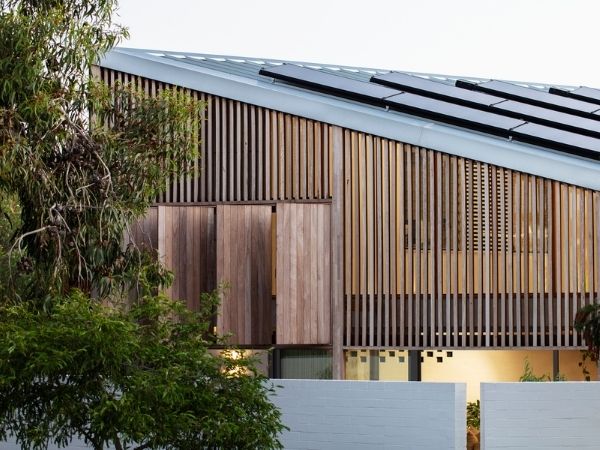
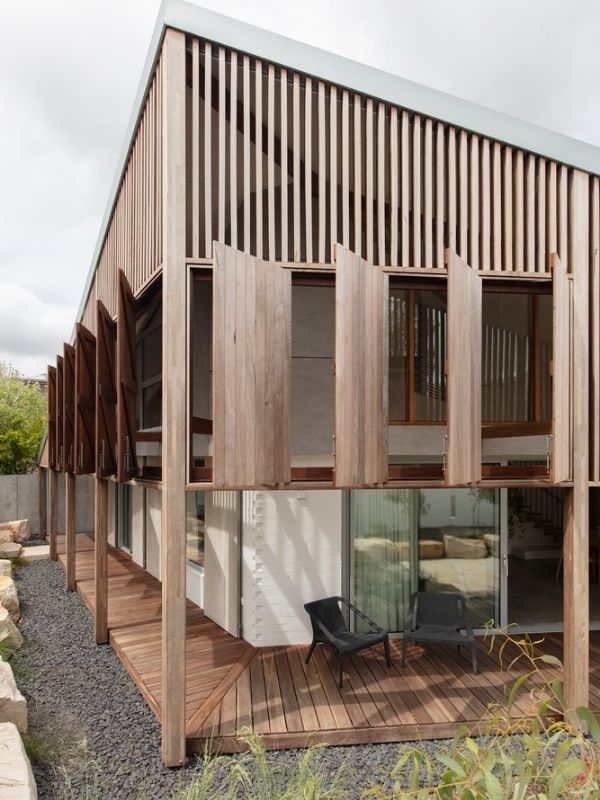
The original home was a single storey attached domicile that was part of a triplex, built in the 1980s. Situated on a roundabout at Applecross in Perth’s south-west, Macdonald Road House acts as a gateway of sorts to the local shopping precinct. Aware of its distinct location, Philip Stejskal looked towards building something that was a significant contributor to the setting. What resulted was an ingeniously thought out floor plan in the shape of a parallelogram that is unconventional amongst many homes of today, but perfect for the block Macdonald Road House is situated upon.
The team at Philip Stejskal looked to the past to ultimately shape the future. The Australian homestead as well as its mid-century counterpart — the attached home — to inform its responses to climate, scale and form. The verandah of the house, likened to an Akubra, offers protection and reprieve from the heat. It wraps around the northern and eastern elevation and offers both privacy and protection from the sun.
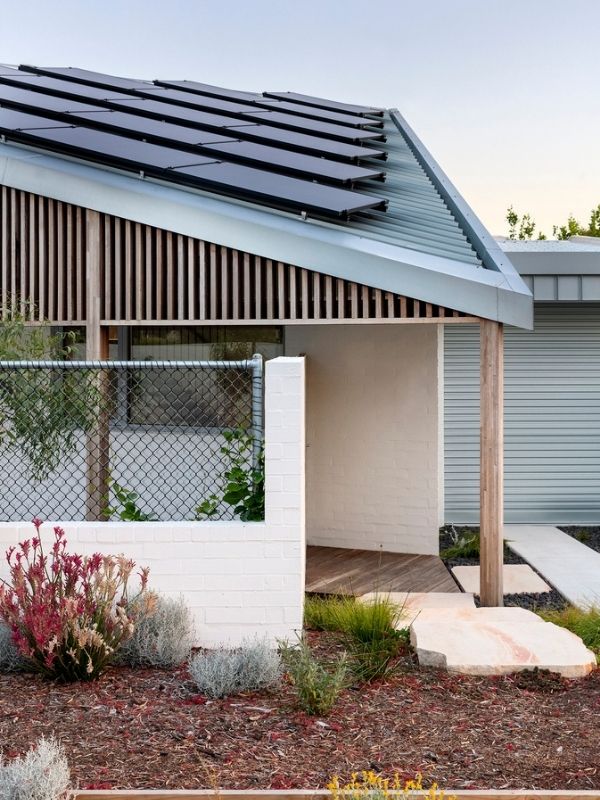
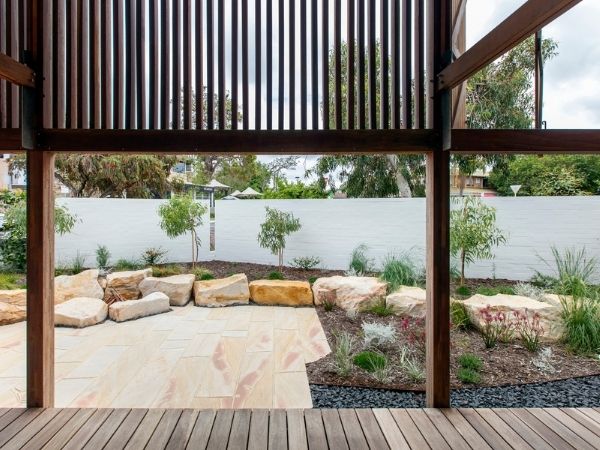
The parallelogram floorplan has been created for the house to be congruent with the alignment of the street, with public spaces located closer to the outer edges. Guest bedrooms and a second bathroom are located upstairs. The roof provides shelter over much of the exterior areas as well, with the roofline tapering down to low tips that ensure privacy from the neighbours.
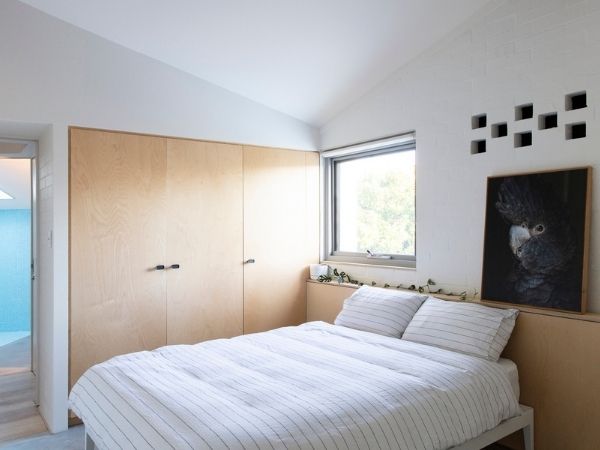
Despite the close proximity to a commercial hub and the busy roundabout, Macdonald Road House is able to still maintain a sense of tranquility. A solid brick fence and spotted gum tree act as keepers of the abode, ensuring the house remains a world away from the hustle and bustle beyond the fence. Philip Stejskal worked in partnership with a range of structural engineers, energy assessors, lighting and air-conditioning experts on the design. The house incorporates Passivhaus principles (sealed perimeter, lift & lock sliders) suited to this climate, and is very much the sustainable entity. Hydronic in-slab heating and a heat recovery ventilation system ensure warmth and good indoor air quality when the house is sealed in winter.
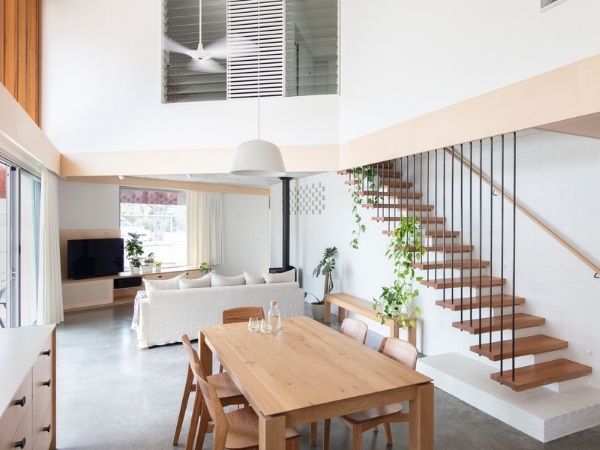
Cross ventilation via brick perforations in the central core ensures natural cooling in summer. Generous internal thermal mass stabilizes internal temperatures all year-round, while passive design principles (orientation, protection of openings) help to minimize heat-load in summer and maximize it in winter, highlighting the intelligence of modern day sustainable design.
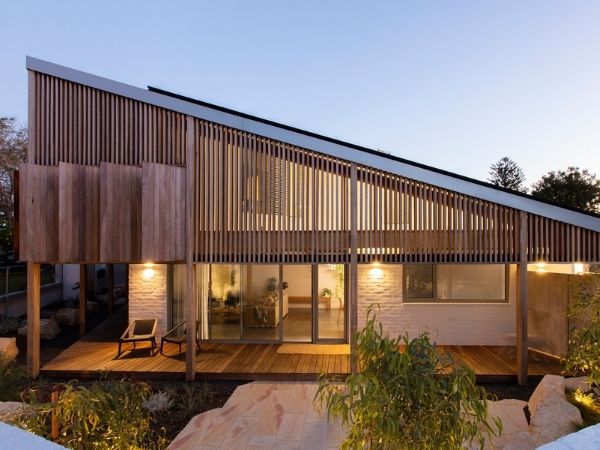

Using the location of the house to inspire the overall design, Philip Stejskal Architecture have created a modern, sustainable home that acknowledges classic Australiana to formulate an unconventional home. Reminiscent of the Australian homestead, Macdonald Road House provides the couple with a place to grow old within, that serves as a reminder of what has come before, amongst a contemporary backdrop.

